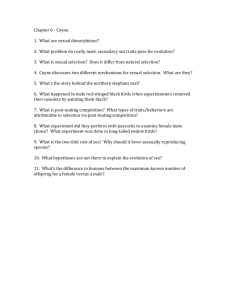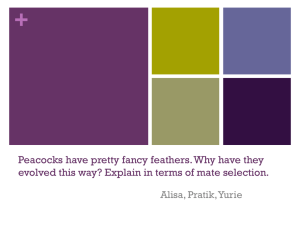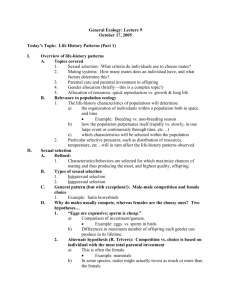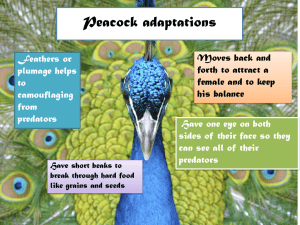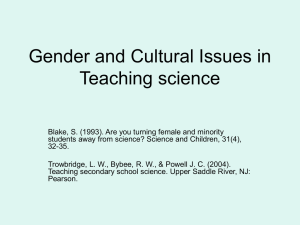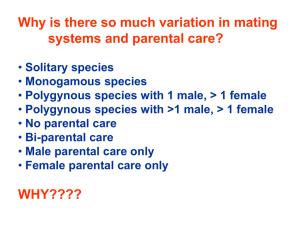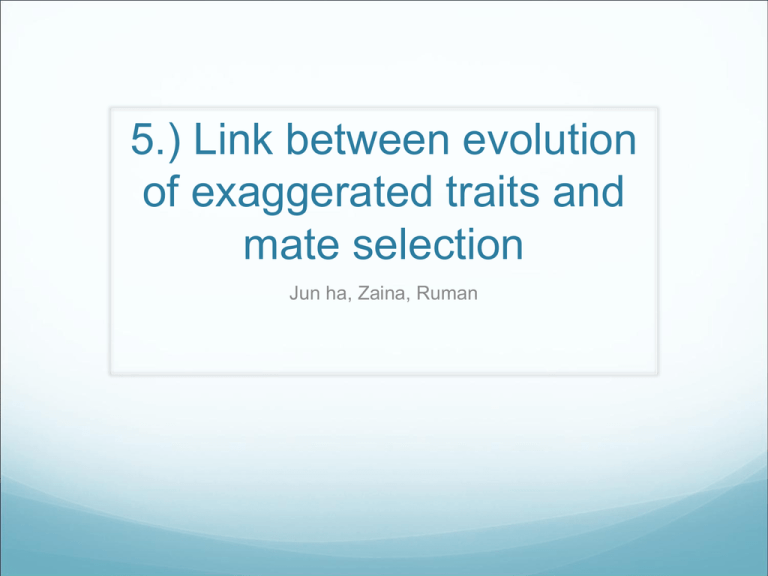
5.) Link between evolution
of exaggerated traits and
mate selection
Jun ha, Zaina, Ruman
Evolutionary success
Passing of genes to future generations
Natural selection
Has led to evolution of differences between males and
females
‘sexual dimorphism’
Sexual dimorphism = the change in phenotypic
differences between males and females of the same
species
(males and females are physically different in ways other than
their sexual organs)
Plays a role in indicating which is a stronger mate
Darwin found that species where males and females that
were similar were more likely to be monogamous
Polygamous species have differences to allow males to
mate with more females
Differences are indicative of stronger characteristics
Secondary Sexual
Characteristic
•Traits that appear to be peculiar to one sex but are not
part of the reproductive organs
•When you consider peacocks, they have special
extravagant traits that can act as an advantage when
mating
•Through modification, traits can become attractive
overtime as seen in peacock feathers. The peacock
flares out his feathers when he is trying to get the
peahen's attention for the purpose of mating to continue
reproducing as means for survival.
In some peacocks,
males show
exaggerated traits.
Colourful tail feathers
Advertises their
reproductive worth to
peahens
Downsides
Tail feathers are an encumbrance
Hinders rapid movement, e.g. during attacks by predators
Evidence
Studies have shown
Peahens prefer to reproduce with more colourful
peacocks
Colourful peacocks are often the strongest, healthiest and
least-parasitised males
Counterclaim
But some research has shown
No link between the colourfulness and parasitism
Peahens select males with the loudest vocalisation
Thus peacock’s colour may not indicate health
Runaway evolution
Colourful peacock feathers may be an example of
Runaway evolution
There are other examples
like...
The lyre bird is able to imitate sounds of at least
20 different species to scare their rivals (males)
When male deer fight with their strong antlers to
show superiority
Singing (sense: sound) of
Blackbirds
Reverse dimorphism = when females develop the
dominant traits
Blue whales- females
are larger as they’re
easier to find
Black myotis- females
are larger to facilitate
egg formation (which
need more energy)
Sources
Antigrandiose. File:Peacock Milwaukee County Zoo.jpg. Digital
image.En.wikipedia.org/. 24 June 2010. Wikipedia. 20 Feb. 2012
<http://en.wikipedia.org/wiki/File:Peacock_Milwaukee_County_Zoo.jpg>.
Boultont. "Explain how mate selection can lead to exaggerated
traits."Ibbiology.wetpaint.com. 29 May 2009. Wetpaint. 20 Feb. 2012
<http://ibbiology.wetpaint.com/page/Explain+how+mate+selection+can+lead+t
o+exaggerated+traits>.
Pape, Dave. File:Golden tiger 1 - Buffalo Zoo.jpg. Digital
image. En.wikipedia.org/. 16 Dec. 2006. Wikipedia. 20 Feb. 2012
<http://en.wikipedia.org/wiki/File:Golden_tiger_1_-_Buffalo_Zoo.jpg>.
http://animal-unique.blogspot.com/2011/10/blue-whale.html
http://en.wikipedia.org/wiki/Sexual_dimorphism
http://animals.about.com/od/zoology12/f/sexualdimorphis.htm

